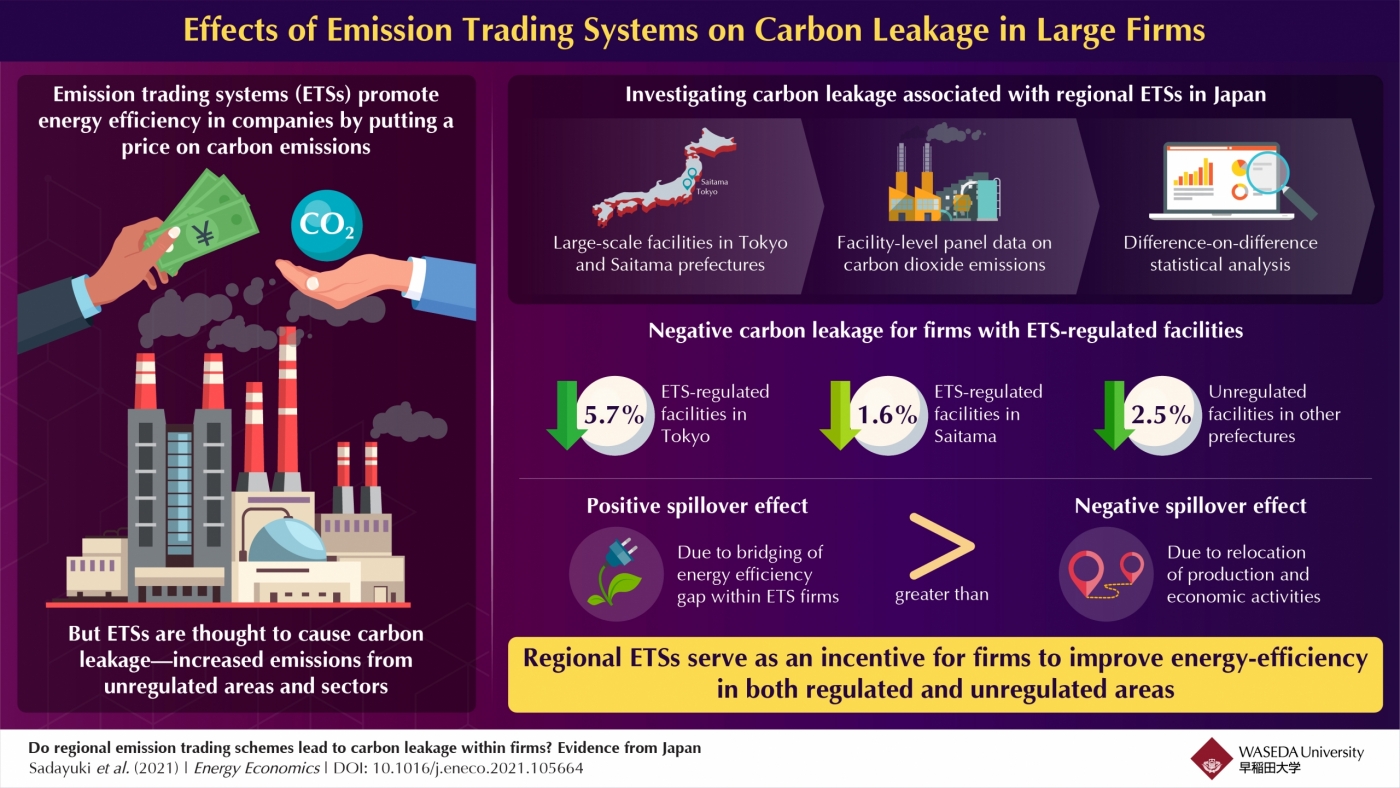Impact of Regional Emission Trading Systems on a Firm’s Overall Carbon Footprint

Climate change is a global concern that is in urgent need of mitigation. One of the ways to achieve this is to curb carbon dioxide emissions though policies such as emission trading systems (ETSs). An ETS lays a ceiling on the maximum amount of carbon dioxide emissions that a certain facility can emit and allows the trading of emission permits. Under this system, firms with high emissions would need to buy permits from firms with lower emissions, which would in turn drive up their operating costs and product prices and thereby incentivize companies and consumers to favor eco-friendly goods.
A common criticism of ETSs is that they are thought to cause “carbon leakage,” a shift in emissions from regulated regions to unregulated regions. To address this concern, we performed a difference-in-difference analysis of emissions data from approximately 15,000 large facilities in Japan for the period between 2009 and 2014, when regional ETSs were implemented in Tokyo and Saitama.
We found that, contrary to the notion of carbon leakage, firms with ETS regulated facilities reduced emissions from both their regulated facilities in Tokyo (average 5.7% reduction) and Saitama (average 1.6% reduction), as well as unregulated facilities in other prefectures as well (average 2.5% reduction). This negative leakage was true for various sample selections and estimation models.
These results indicate that ETSs improve energy efficiency within firms, causing a positive spillover effect that offsets the negative spillover that results from relocating production processes, and leading to overall negative carbon leakage.
Our findings demonstrate the ETSs are an effective means of tackling carbon dioxide emissions and constitute a worthwhile step towards mitigating climate change.
Link to the original journal article: https://www.sciencedirect.com/science/article/pii/S0140988321005211
About the author
Dr. Toshi H. Arimura is a Professor of Political Science and Economics and Director of the Research Institute for Environment Economics and Management at Waseda University, Japan. His research focuses on climate change, energy policies, air pollution regulations, and voluntary environmental action. He has served on several Japanese government committees on environmental issues, and in 2018, he was awarded the SEEPS Outstanding Publication Award from the Society for Environmental Economics and Policy Studies (Japanese Association of Environmental Economics and Policy). He is currently serving as a president of SEEPS. Professor Arimura obtained his PhD from the University of Minnesota in 2000.








